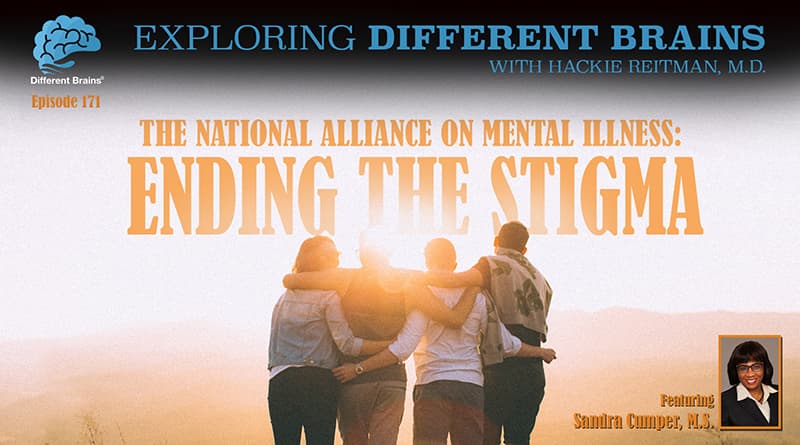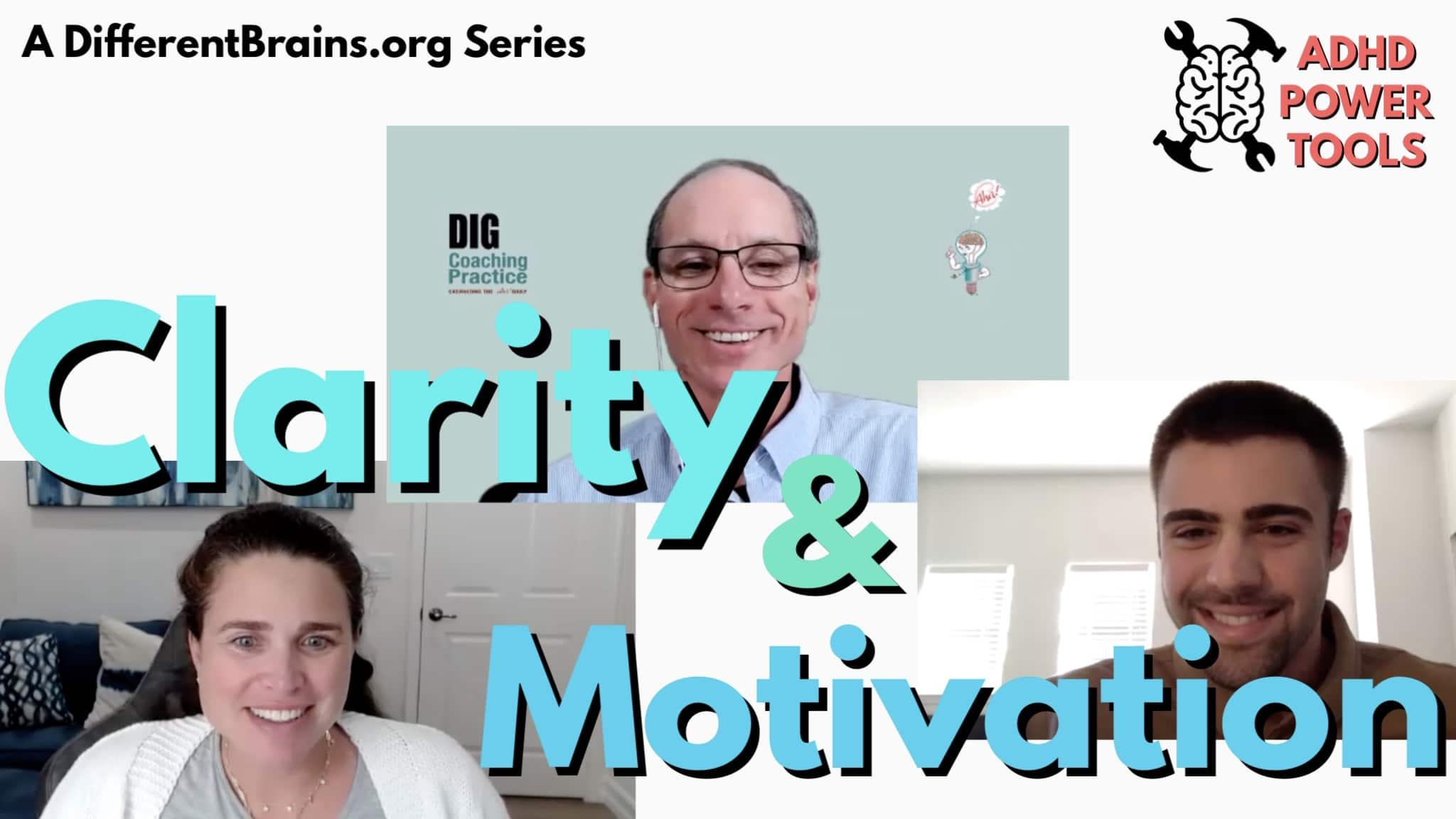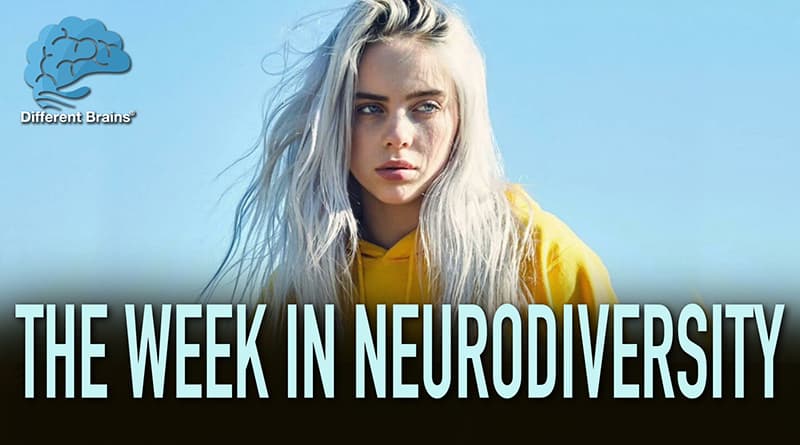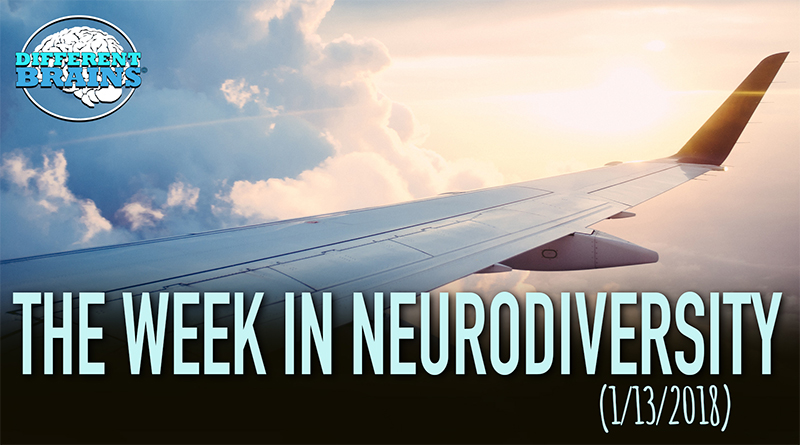
National Alliance on Mental Illness: Ending the Stigma, with Sandra Cumper, M.S. | EDB 171
Hackie Reitman, M.D. discusses ending stigma with Sandra Cumper, M.S. of NAMI Broward
(15 minutes) Sandra Cumper, M.S. is the executive director of NAMI Broward. NAMI (National Alliance on Mental Illness) is a grassroots organization of individuals with mental illnesses, especially serious mental illnesses, their family members, and friends whose mission is to advocate for effective prevention, diagnosis, treatment, support, research and recovery that improves the quality of life of persons of all ages who are affected by mental illnesses. Hackie and Sandra discuss the NAMI mission, how the alliance works in communities to raise aware around mental health issues, and gives advice on how everyone can work to end stigma.
For more about NAMI Broward: namibroward.org
For the national NAMI office: nami.org
To listen or download the podcast version of this episode, see the embedded player below.
Or look for us on your favorite podcast provider:
iTunes | Stitcher | SoundCloud
FULL TRANSCRIPTION
Getting to know Sandra Cumper of NAMI Broward
HACKIE REITMAN M.D. (HR): Hi, I’m Dr. Hackie Reitman. Welcome to another episode of Exploring Different Brains. Today, we have with us Sandra Cumper, who is the Executive Director of NAMI, the National Alliance for Mental Illness, and Sandra, thank you for being here. Introduce yourself.
SANDRA CUMPER, M.S. (SC): Thank you so much. My name is Sandra Cumper. I’m the Executive Director of NAMI Broward County, and NAMI, as you said, is the National Alliance on Mental Illness, and we are the local affiliate for the national organization NAMI.
What is NAMI?
HR: What’s your mission?
SC: Our mission is to provide education to the entire Broward County population for families and those individuals who are living with mental illness to understand that this is not a death sentence. They can go on to becoming productive citizens if they understand their illness, if they do accept treatment, and know that medication, education, treatment works. Recovery is possible, so what we do is provide programs for individuals living with mental illness, their families, and their friends. We educate families to understand how it is for their loved ones to suffer from a mental illness. We educate those individuals who are living with mental illness to know that… to understand the illness themselves, and we invite friends who are caregivers to be a part of the educational process.
HR: So you’re here in Broward County, Florida, here in South Florida, Greater Fort Lauderdale, but you’re part of a whole national network. Is that in every state?
SC: We actually have over a thousand NAMI affiliates. We have a state office in most states, the majority of our states, I’m thinking we may not have in about two or three states; however, we do have 24 affiliates in the state of Florida itself.
Ending the Stigma
HR: You know, stigma for all of neurodiversity, whether we’re talking about mental health issues, whether we’re talking about developmental intellectual differences, neurological differences… What does NAMI do try to eradicate the stigma?
SC: That is one of our focuses. Stigma, we want the community of Broward County and the world to know that you are okay to go and get a check up from your neck up if you’re diagnosed with a mental illness, so we provide… we offer 10 programs in Broward County. These are programs for our family-to-family program, we offer a pair-to-pair program, we offer a family support group, which we find is so important for the individuals who are caregivers of loved ones with mental illness because we want individuals to understand mental health. We want to bring awareness to the fact that mental health exists but individuals can recover.
HR: Let’s talk about the stigma in our inner-city urban populations over, say, where the Hackie Reitman Boys and Girls in ZIP code 33311, one of the worst ZIP codes no matter how you measure it. The kids are terrific, but it’s hard to discuss mental health issues in that community. Am I off the mark here, and what’s being done in that regard?
SC: Again, because of the stigma, individuals don’t want to hear about mental health because they do not understand mental health, so what we do in areas like that, we have our representatives to go into these communities to meet with individuals, to talk with them in group settings. One of the most important things about NAMI is that we train individuals to become trainers themselves. Basically an individual who is living with mental illness is offered a specific training to provide the training to peers. So it’s- we have a lot of peer-led programs that we find that individuals who are living with mental illness relate somewhat to peers. We offer a number of programs, all – free to the community. We encourage our church sectors, schools, we offer program- it’s called “End the silence”, where we have individuals going into the school rooms, the high schools, and the middle schools, and the colleges, to talk about mental health, to address mental illness from that stage where young kids are at that point, where they’re making changes in their lives, and changes can sometimes help to exasperate some behaviors and some medical issues, mental health issues; because hormonal changes, moving away from homes, going into colleges, self-developing new friendship; sometimes those can actually affect a young person. So before these individuals get into the system, we want them to recognize the signs and the symptoms associated with mental illness.
Advocating Mental Health in Religious Communities
HR: What kind of reception are you running into in the church community, here in Broward County?
SC: We do have individuals- leaders of churches, that sometimes feel that it’s unnecessary to bring this to their community, to their congregation; because it’s an- it’s a long term thinking method, I would say, where people would sometimes think that the church leader is a person to go to for help, and we have congregations that will encourage their congregation to speak only to their pastors, or their ministers to get help. But what we have seen over time in the past few years, is that a lot of our ministers and pastors are now recognizing that mental health, which is very prevalent, and is becoming more so, is something that is outside of their realm; that’s not something they were trained to treat or handle. So they are now encouraging NAMI to present what we call “faith net” which is a program we offer to churches specifically for that congregation, that population. It’s not a- It’s not- we don’t have specific denomination, we meet every person, and we meet them from that level, where they can understand that we’re coming from a faith based level, and understanding that we are not there to become their pastors, or to get into their religious beliefs, but basically to talk about mental health, and that it’s a condition that affects anybody, everybody, anywhere; it does not discriminate.
HR: It’s very wise to present as a value added to the church-
SC: absolutely
HR: – as opposed to competition
SC: Correct.
How Everyone Can “Silence the Stigma”
HR: Our audience watching here at differentbrains.org, what can they do to end the stigma of mental health issues?
SC: We can talk about mental health; we look for an audience and pour on every person, not to be afraid to talk about mental health. It affects every person, at different levels. It – mental illness may not affect you directly, but indirectly, everything that comes with it. The taxes you pay, being able to get medical care, indirectly, mental health affects us all. We see people living on the streets who are homeless. We have to pay for those people to get treatment in our hospitals. So we wanna be able to talk about mental health, we wanna be able to talk about recognizing the signs and the symptoms. We invite the audience to be apart of our programs, and to understand it so they too can go out and tell their family members, and to encourage those who are living with mental illness to get the treatment they need.
HR: What are the biggest road blocks you run into?
SC: Roadblocks are just denial. Individuals who are in denial, and not only is denial from the person who is experiencing these symptoms and behaviors, but family members who do not acknowledge that mental health is a condition that can be treated like a medical connection. We find that getting treatment for more hospitals, there are individuals who are unable to pay for treatment, and because they are unable to pay, they are not choosing to go into the hospital to be treated. We have individuals who do not understand mental health, and they will turn people away, and believing that this is something that will go away by itself. It’s a medical- it’s a condition just like a medical condition. A person with cancer will not heal themselves- they need to be treated. A person having a problem in the brain need to seek treatment.
HR: Very well said. How can our audience find out more about what you’re doing?
SC: We would love to invite our audience to go to our NAMI website; it’s www.namibroward.org, and there you will find all our programs- you’ll learn about all our programs which again are free to the community; all our programs are offered free of charge, and what is encouraging about this, is that we encourage family members to volunteer, friends to volunteer to be a part of our NAMI organization. In fact 70% of our staff are volunteers; 70% of the people who offer these programs are trained by NAMI; we have our 13 signature programs, and all these people are trained to present these programs to give back to the community. Our programs are by design, signature programs; what that means is that if you start one of our family class, and you have to move to Alaska, and you wanna continue with that class midway, in that 6 week class, it’s the exact- the exact program that you left here in Broward County. So all our programs- and we wanna maintain the fidelity of what NAMI national started. So we ensure that our programs are well represented, we ensure that our individuals who present these programs are highly trained to give back this program to the community.
Getting Involved in NAMI
HR: That’s great. Is there anything we haven’t covered that you would like to cover?
SC: I would like to cover that we invite every person to be involved in NAMI. We are a non-profit organization, we have been around for 35 years in Broward County, it is amazing that there are individuals who will not or have not heard of NAMI national alliance of mental illness when we have been around for a very long time and our main purpose is to treat every person living with mental illness, with dignity and respect. So that they will not be in a position where they are afraid to talk about their mental illness. We do have a national walk, a NAMI walk, where we invite the community to get together, and one of the things that we do with NAMI is to build partnership, and our walk which is actually on the February 9th at Tradewinds Park in Coconut Creek, at our walk, we will invite our entire behavioral health community, and we have provided attending vendors there, participating in our walk again that’s a free walk, and again everybody is invited, everybody.
HR: That’s great. Great. Well Sandra Cumper, it has been a delight to have you here at Exploring Different Brains. Keep up the great work you’re doing for the national alliance on mental illness, NAMI, right here in South Florida in Broward County, and I’m sure that you’ll continue to do the good work you’re doing.
SC: Thank you so much, thank you so much for having me.




